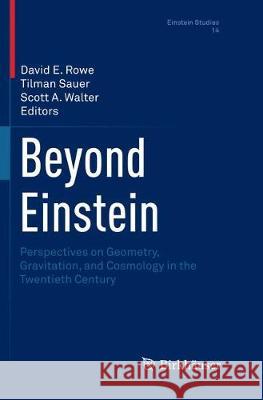Beyond Einstein: Perspectives on Geometry, Gravitation, and Cosmology in the Twentieth Century » książka
topmenu
Beyond Einstein: Perspectives on Geometry, Gravitation, and Cosmology in the Twentieth Century
ISBN-13: 9781493992638 / Angielski / Miękka / 2019 / 492 str.
Kategorie:
Kategorie BISAC:
Wydawca:
Birkhauser
Seria wydawnicza:
Język:
Angielski
ISBN-13:
9781493992638
Rok wydania:
2019
Wydanie:
Softcover Repri
Numer serii:
000007294
Ilość stron:
492
Waga:
0.71 kg
Wymiary:
23.39 x 15.6 x 2.64
Oprawa:
Miękka
Wolumenów:
01
Dodatkowe informacje:
Wydanie ilustrowane











